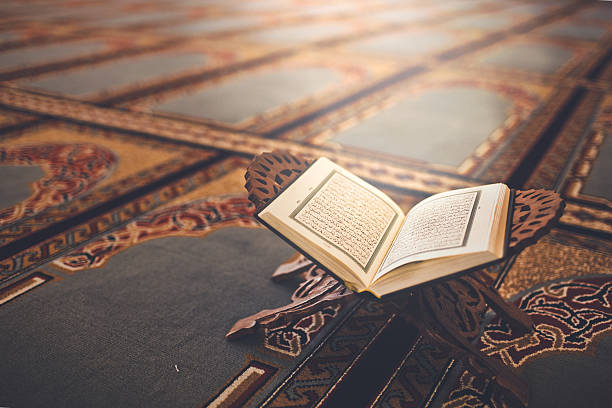Itikaf refers to being in seclusion within the confines of a Masjid for a set time period to perform acts of worship for Allah and to stay away from worldly affairs. The Prophet did Itikaf during the last 10 days of Ramadan, in search of the Night of Power or Laylatul Qadr as mentioned in the Quran.
The Duas for Fasting in Ramadan >>
5 acts of worship during Itikaf
- Performing the 5 daily prayers. You can enhance the prayers by performing not only the obligatory prayers but also the nafl or optional salaah too, as well as doing the adkhar (remembrance of Allah) that come before and after the prayers.
- Recitation of the Quran. Take this opportunity to learn to pray with correct pronunciation, or if you already have fluency, aim to complete the full Quran within the 10 days you are in Itikaf. Also, read the translation to understand better what you are reading.
- Adherence to the daily adkhar. The Prophet (SAW) provided us with a huge collection of daily remembrance of Allah which we can engage in morning evening and night. We don’t always have time outside of Ramadan, but in Itikaf you have the best opportunity to read many of the adkhar daily.
- Engaging in dua (supplication). This is not just about the duas you make now and then, but actively create a list of duas that you will pray daily in itikaf. Make sure you refer back to the list to cover them all and keep adding to the list. Supplicate morning and evening and after every prayer. The list will help you remember them all.
- Seek religious knowledge. Use the time that you have to learn from the Tafsir (commentary) of the Quran or the Seerah (life) of the Prophet. Make notes on what you can action or questions you may have and actively learn things to implement going forward.
Things to avoid in Itikaf
- Wasting time in sleeping more than you normally do
- Backbiting
- Gossiping
- Time on the phone on non useful activities
- Social media and group chats
3 Types of Itikaf
- Wajib. This is when a person makes itikaf obligatory upon himself with a vow. To perform Itikaf by saying if a particular wish is fulfilled or granted, they will do the Itikaf for a certain number of days. If that wish is fulfilled, the Itikaf becomes obligatory on him to perform.
- Sunnah. This is performed during the last 10 days of Ramadan just as the Prophet (SAW) did. With the niyyah (intention) of following him, it is necessary for at least some people within a community to perform this each Ramadan in the masjid. If no one does the sunnah Itikaf, the whole community would be sinful for neglecting it.
- Mustahab or Nafl. This is an optional itikaf and can be performed any time for any length of time in the masjid. Even if it’s for a few minutes. No fast is required while performing this type.
Ramadan Daily Duas from Quran and Hadith >>

Virtues of Itikaf in Ramadan
The virtues of Itikaf are that it gives you a strong focus on your worship; having no distractions gives you more sincerity in your actions and supplications that have a better chance of being accepted. Also, your rewards for acts of worship are multiplied.
As the main purpose of Itikaf is to seclude oneself from worldly distractions and to perform different acts of worship, many other virtues are associated with it:
- Seeking forgiveness with sincerity for sins committed becomes easier
- Rewards are multiplied unimaginably more because you are performing acts of worship in the masjid, keeping away from sin, in the state of compulsory fasting, adhering to the commands of Allah mentioned in the Quran, and following what has been shown by the Prophet (SAW)
- Without distractions, you are able to focus on the meanings of the Quran and hadith verses, concentrate on perfecting your Salaah and implementing what you have learned into your life
- Protection from Hell for performing even one day of Itikaf
- A chance to realign your priorities so you concentrate on what is important
Laylatul Qadr (Night of Power)
One of the greatest aims and efforts of Itikaf is to seek the Night of Power (Laylatul Qadr) which occurs during the last 10 nights of Ramadan. There is no night in the year that has been more emphasized than this night and the 97th Surah is dedicated entirely to it.
